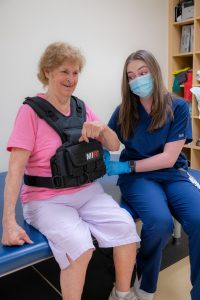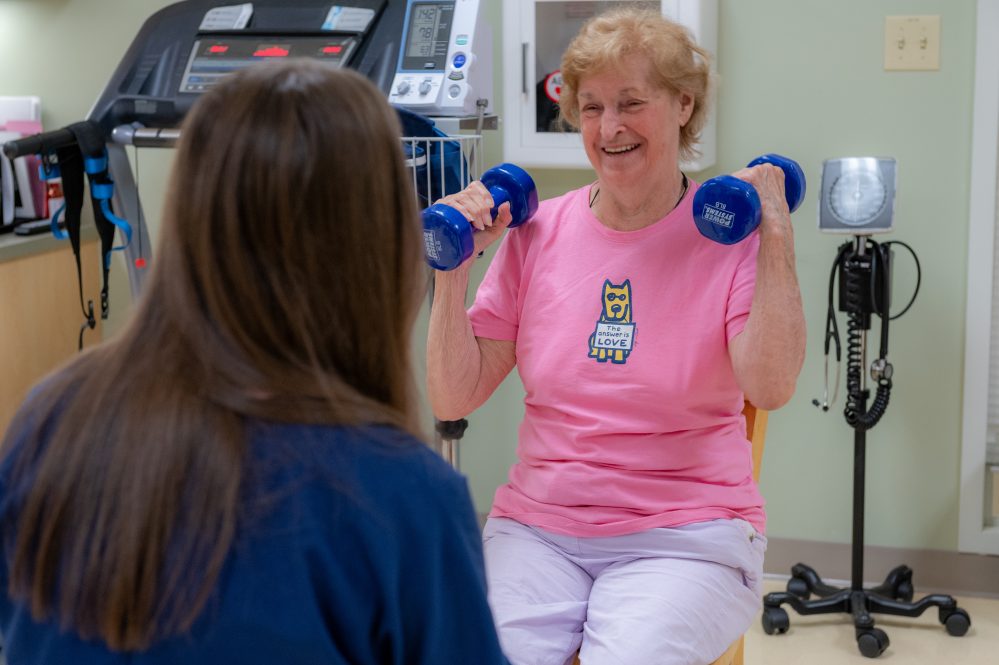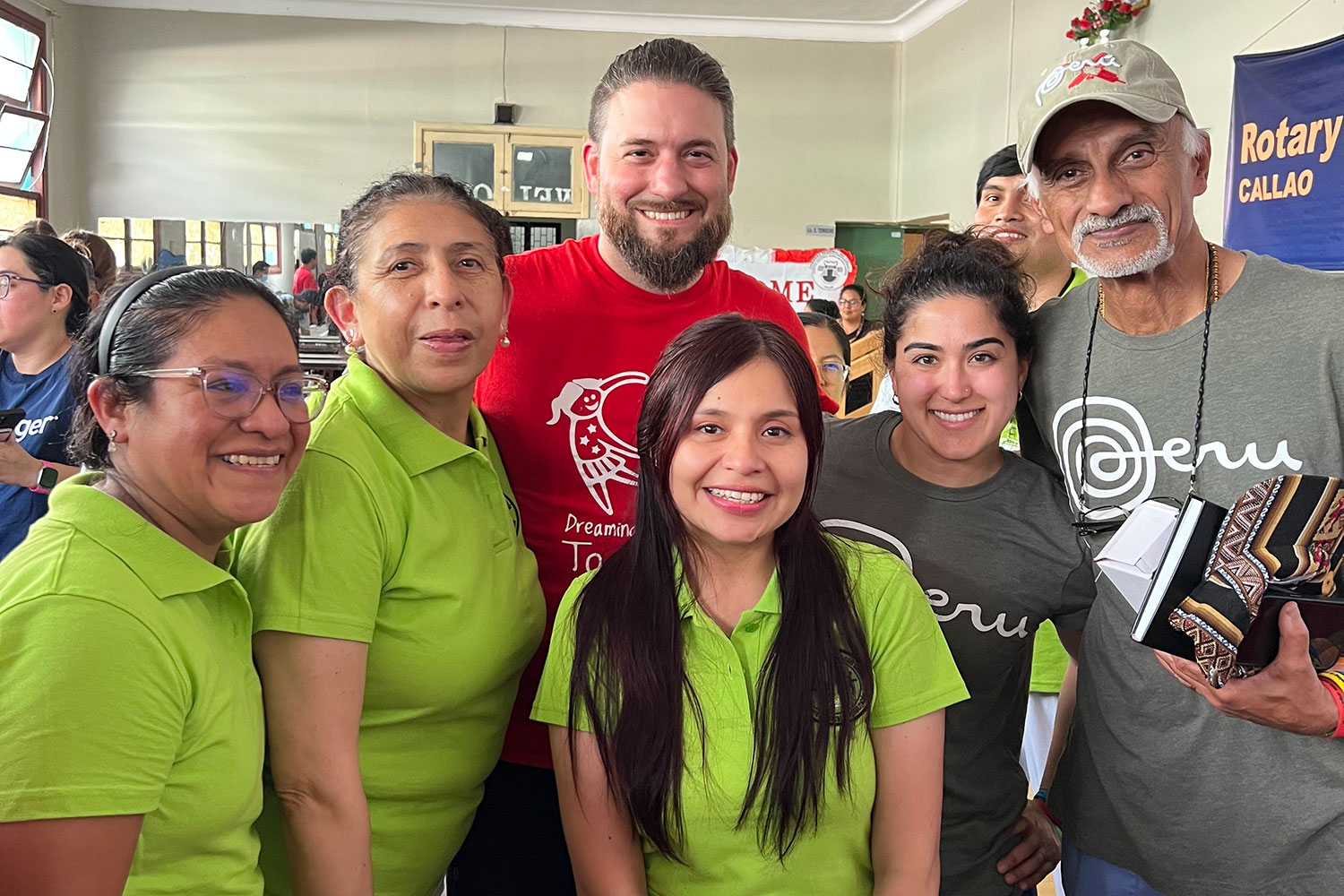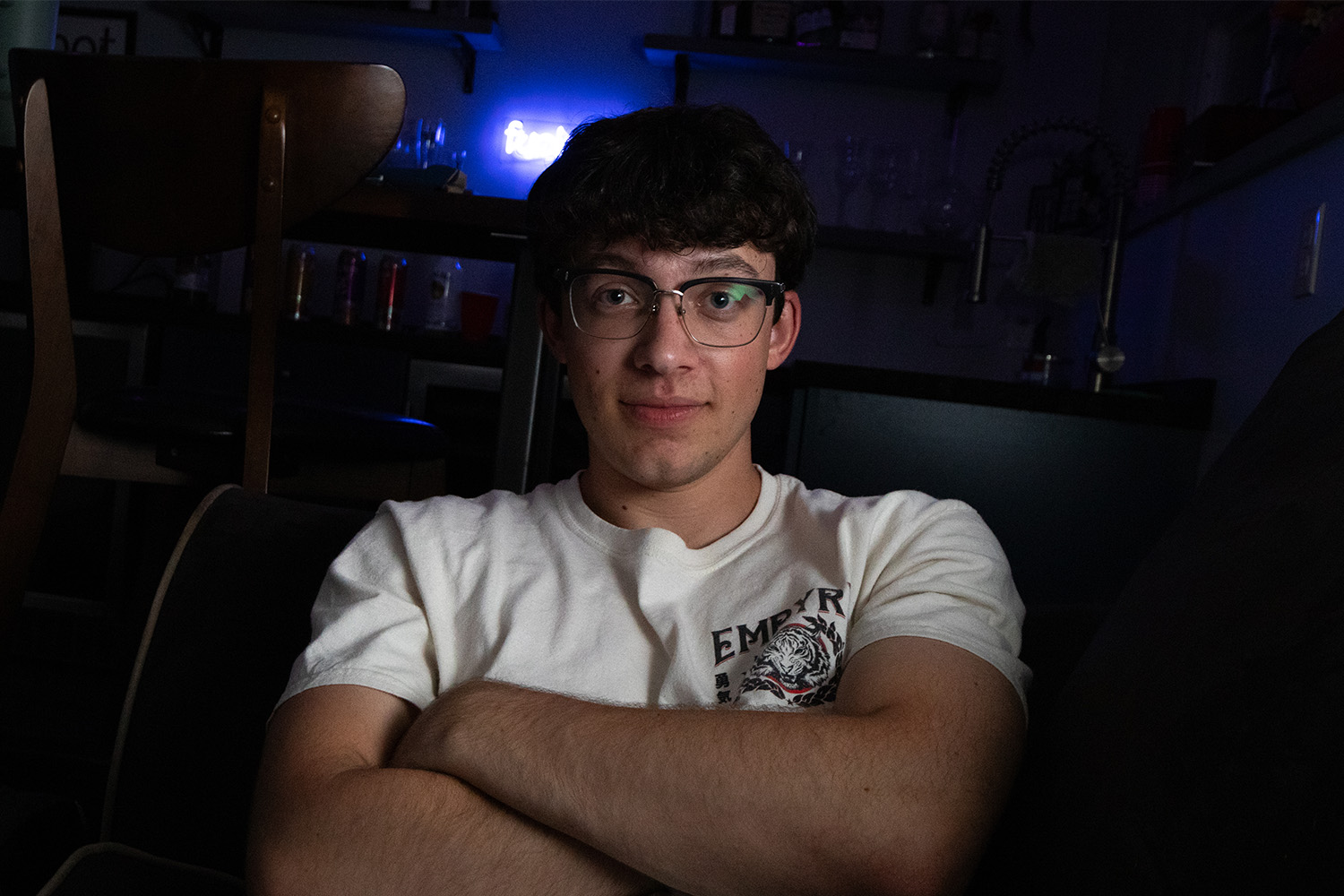An unexpected slope of a newly installed sidewalk on a cold February day and Maryann Pelz, 88 of Plymouth found herself on the ground in extreme pain and unable to move. Her screams for help alerted her son’s dog that something was wrong.
Each year over 300,000 people over 65 years old are hospitalized for a hip fracture, and in 2021, Pelz was one of them. It is hard to recover from a hip fracture and afterward many people are not able to live on their own.
Pelz was operated on, went to rehab, and sent to physical therapy. She felt the physical therapy was limited and that they were pushing her to take medication more often than she wanted.
Once she was back at home, Pelz, a social and active person who wasn’t able to drive was isolated and started to feel down mentally and physically did not move around as much.
Her daughter, Ellen Benson, operation room nurse manager at UConn John Dempsey Hospital happened on information in an employee publication about the STEP-HI research study offered at the UConn Center on Aging. After looking into it further, she thought it was a great option for her mother, not only to participate in and benefit from the research program but to give her the opportunity to be more active socially.
Pelz agreed, it sounded like a great option, especially since the research program provide her with transportation from her home in Terryville. After an initial meeting, she was accepted into the program.

The STEP-HI clinical trial enrolls women over the age of 65 who have fractured a hip within the past six to twenty-four weeks. Study participants are randomly assigned to one of three groups. Two groups participate in individually supervised exercise training sessions twice per week for six months and are asked to apply a gel daily (testosterone or placebo) while a third group is given structured exercises to do at home.
In addition to the exercise training, all participants receive free vitamin D and calcium supplements, a mammogram, bone density tests, physical exams with a physician or APRN, and transportation to and from UConn Health.
“On top of all these benefits, participants love the added value of being watched closely by a team of healthcare professionals throughout the study,” says Heather McAbee-Sevick, the study coordinator and exercise interventionist at the UConn Center on Aging.
“It’s so wonderful, they are so attentive and make every effort to do everything to help,” says Pelz. “You get to know everyone and they are so great, even the drivers.”
The study is working to improve function in women who’ve broken a hip. When an older woman sustains a hip fracture, standard physical therapy sometimes is not enough. The STEP- HI study is a multi-site clinical trial, researching the benefits of exercise training and hormone replacement on a hip fracture recovery in older women.
As one of the clinical trials’ lead investigators at the UConn Center on Aging, Dr. Jenna Bartley explains, “As we age, we lose muscle mass and strength, and especially after an injury, it’s hard to regain these losses. Older women after hip fracture may just need an extra boost to get them back in their pre-fracture ability level.”
“I am so glad she did the study, she is so much stronger physically and mentally,” says Benson.
“It was really depressing being home and not getting out with COVID or being able to drive,” says Pelz. “Now every time I go I have so much fun, it’s like comedy hour.”
During the study, Pelz was also connected to Dr. Olga Solovyova, assistant professor of orthopedic surgery at UConn Health, for an issue that she was having with her knee replacement and is also now receiving physical therapy to help. “They really went above and beyond in connecting her with Dr. Solovyova to help with her knee as well,” says Benson.
Both Benson and Pelz are sad to see her time in the study ending in January because it was such a great experience for Pelz.
She is back to driving and has made changes to her life that make her more independent such as moving her hairdresser closer to her home so she doesn’t have to drive as far.
“I don’t want to hinder my family, so it’s important I was able to regain my independence,” says Pelz.
Interested individuals and healthcare providers can contact site study coordinator Heather McAbee-Sevick at 860-679-6115 or mcabeesevick@uchc.edu for more information.
The multisite STEP-HI trial located at UConn Health is co-led by Drs. George Kuchel, Jenna Bartley, and Richard Fortinsky.



